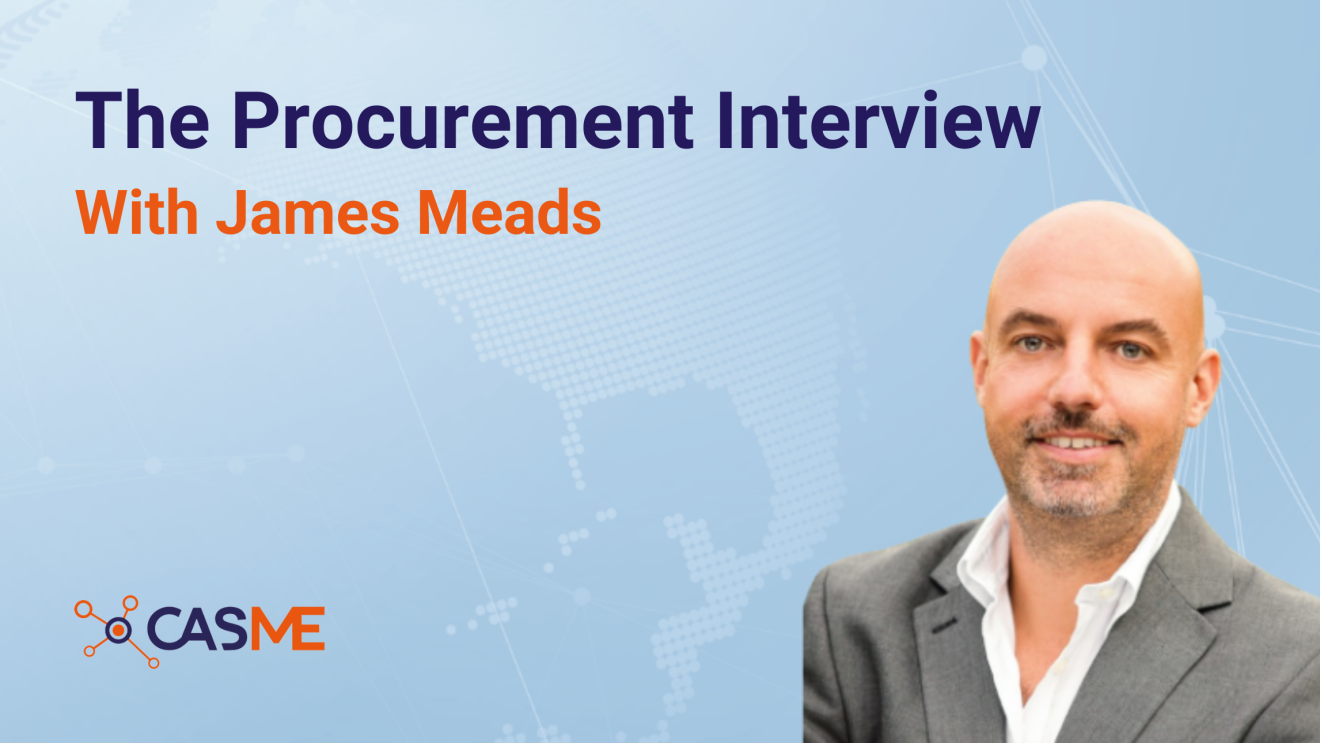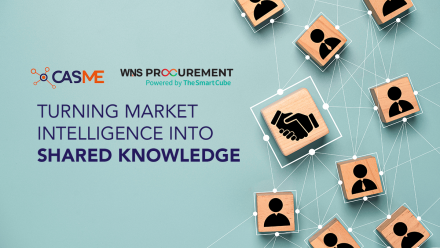
James Meads is a digital procurement technology (Procuretech) solutions expert with a passion for spend analytics. He facilitates CASME events in the EMEA region, as well as hosting his own Procuretech podcast. Here he tells us how he fortuitously ended up working in Procurement, about his adventures in Nigeria, and why due diligence is so important – even on a personal level.
1. How did you get into Procurement?
I first became aware of Procurement during my university degree, on return from completing my sandwich-year placement in Germany; it was July, and I needed a summer job before starting my final year. At that time, typically you would apply for an office job if you were a girl, and if you were a guy, you ended up having to do some horrible factory work! However, as luck would have it, a local company in the automotive industry had recently won a big contract with Ford and were looking for a temporary buying assistant over the summer.
That opened my eyes to the fundamentals of buying, and the procurement function, and how it fits into the wider organisation. After I finished university, I noticed that Jaguar Land Rover were recruiting for their graduate scheme. I applied for a buying role in their Stampings and Press Works Team for car bodywork, using my little knowledge from the previous summer job, and that is ultimately where I started my career in Procurement.
2. What has been the biggest challenge of your career so far?
That’s a good question. Probably dealing with people who are narrow-minded to change, especially within manufacturing operations. Due to the high-pressure environment to produce and react, many operations managers, certainly in manufacturing companies, think the world revolves around them. I look at the situation a little bit more holistically than most, maybe, and might think that their operation could be outsourced. Having hard data and facts to be able to prove people wrong and show that what they are saying is not true, has helped with this issue. Any factory can be outsourced, after all!
3. What has been the most significant success of your career so far?
Spending three months in Nigeria for my company, with the aim of changing the internal perception of Procurement in that area and ensuring that Procurement’s role was understood. I loved being able to see the ultimate change that occurred during such a short period of time.
Originally, I was sent there to be the eyes-and-ears on the ground for an internal audit. Our regional Head of Procurement was concerned that there was little in terms of structured procurement processes in Nigeria, as well as some compliance issues. At the time, my Nigerian colleagues were trying to outsource all in-house operations to a third-party in Europe; but they were struggling. In Nigeria, I became the direct contact with Europe, which was really appreciated by the team.
4. What advice would you give to someone starting a career in Procurement – especially young people?
Choose your industry carefully, and perform due diligence on the company you’re interested in. Personally, I would rather compromise on salary and choose to work for a rapidly growing start-up (which you may get some equity from), even though you might not see obvious or immediate career progression. In big corporations, who promise you the world, it tends to be who you know, rather than what you know. In a start-up, there tends to be fewer people; therefore, at some point, your career will likely progress along with the exponential growth of the company and open more doors.
5. How do you think we could get more young people interested in Procurement?
Making them aware of what Procurement is! However, this doesn’t just apply to young people. When you mention Procurement, people often ask ‘Is that Sales?’ or ‘Is that Law?’ Nobody understands what we do.
There just is not enough awareness within schools or career advisory services of the role and responsibilities of Procurement. Despite this, an increasing number of courses now exist for Procurement and Supply Chain Management, which is a fantastic development.
In the UK, there are some MA and MSc graduate degree courses in Supply Chain Management that include Procurement modules (for example, at Liverpool and Cardiff). There are also similar courses at universities and business schools in Europe and worldwide.
6. Finally, putting Procurement aside (just for a moment), what inspires and motivates you?
Location/surroundings, independence, and one day being able to live and depend on a passive income and my investments rather than having to sell my time for money! Ultimately, my goal is to earn money while I’m asleep; scaling a business that can generate an income without me having to sell my hours for a specific fee.
Back to News



